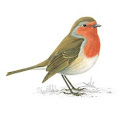I spent some of my morning with the two Paul Celan poems that deal (obliquely, in ciphers) with the Spanish Civil War ("Shibboleth" and "In One"), as well as Jacques Derrida's brilliant essay about them. Even if the poems fall outside of the scope of my thesis, having been written in the 50s and 60s, you better bet that I'll be drawing on both Celan and Derrida in my discussion of the "No pasarán" slogan.
I learned a new word, too. It's always fun to learn a new word, and I guess I didn't look it up the first time I read the Derrida essay, a couple of years ago, during a graduate seminar. The word is "gnomon," and as cute and gnome-like as it sounds, it actually refers to the stick part of a sundial, the horizontal blade that casts a shadow to tell the time.
After reading through the essay, I got sucked into Felstiner's translations of the Celan poems, reminding myself of my favorites and falling in love with others. If it wasn't so long and spread out on the page, I would reproduce "Stretto," an incredible poem and one I used for a course I taught on poetry and music. But I'll content myself with "Speak You Too," a haunting meditation on language.
Speak You Too
Speak you too,
speak as the last,
say out your say.
Speak--
But don't split off No from Yes.
Give your say this meaning too:
give it the shadow.
Give it shadow enough,
give it as much
as you know is spread round you from
midnight to midday and midnight.
Look around:
see how things all come alive--
By death! Alive!
Speaks true who speaks shadow.
But now the place shrinks, where you stand:
Where now, shadow-stripped, where?
Climb. Grope upwards.
Thinner you grow, less knowable, finer!
Finer: a thread
the star wants to descend on:
so as to swim down below, down here
where it sees itself shimmer: in the swell
of wandering words.
~Paul Celan (tr. John Felstiner)
27 February 2009
Wandering words
thoughts thunk by
Robin
at around
13:34
![]()
phylum or species: Poetry, Thesisy thoughts
Subscribe to:
Post Comments (Atom)

1 comment:
At the risk of being nakedly revealing, I have to admit that I don't read poetry that often. Most of my reading has been directed towards novels, classic or contemporary. However when I see a poem like the one you've shared, it will give me pause and make me dwell within the author's words like one would a fine painting. Thanks for sharing. Todd -WORC
Post a Comment